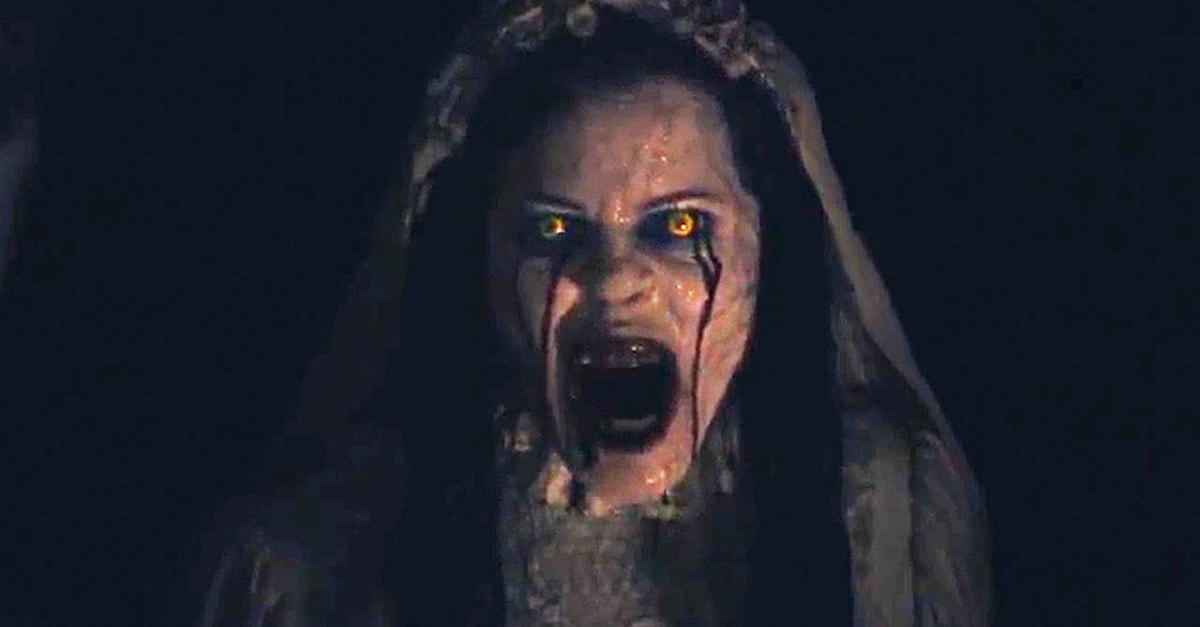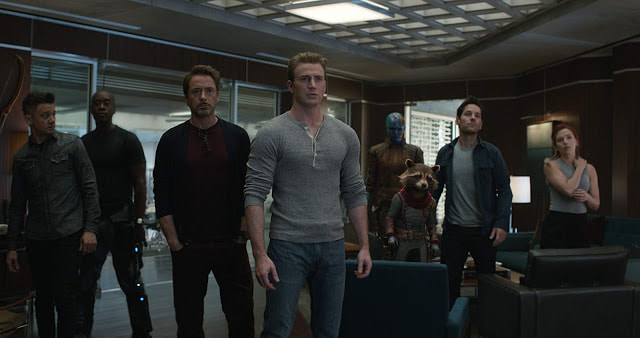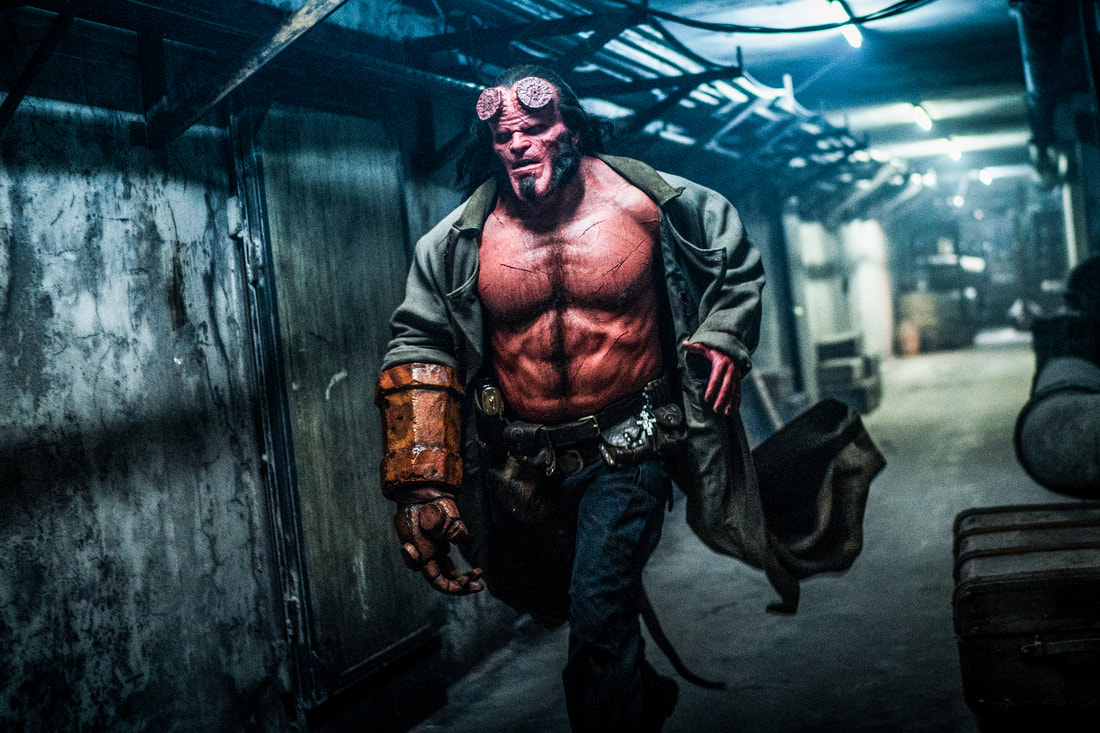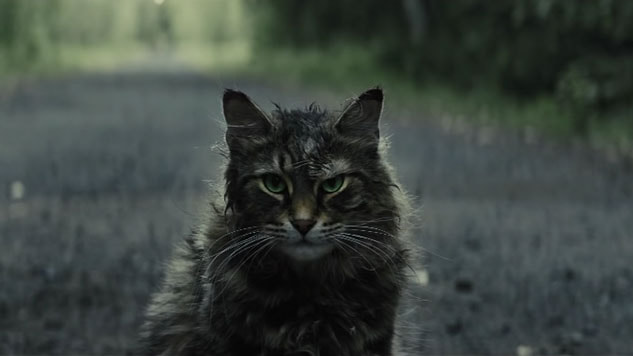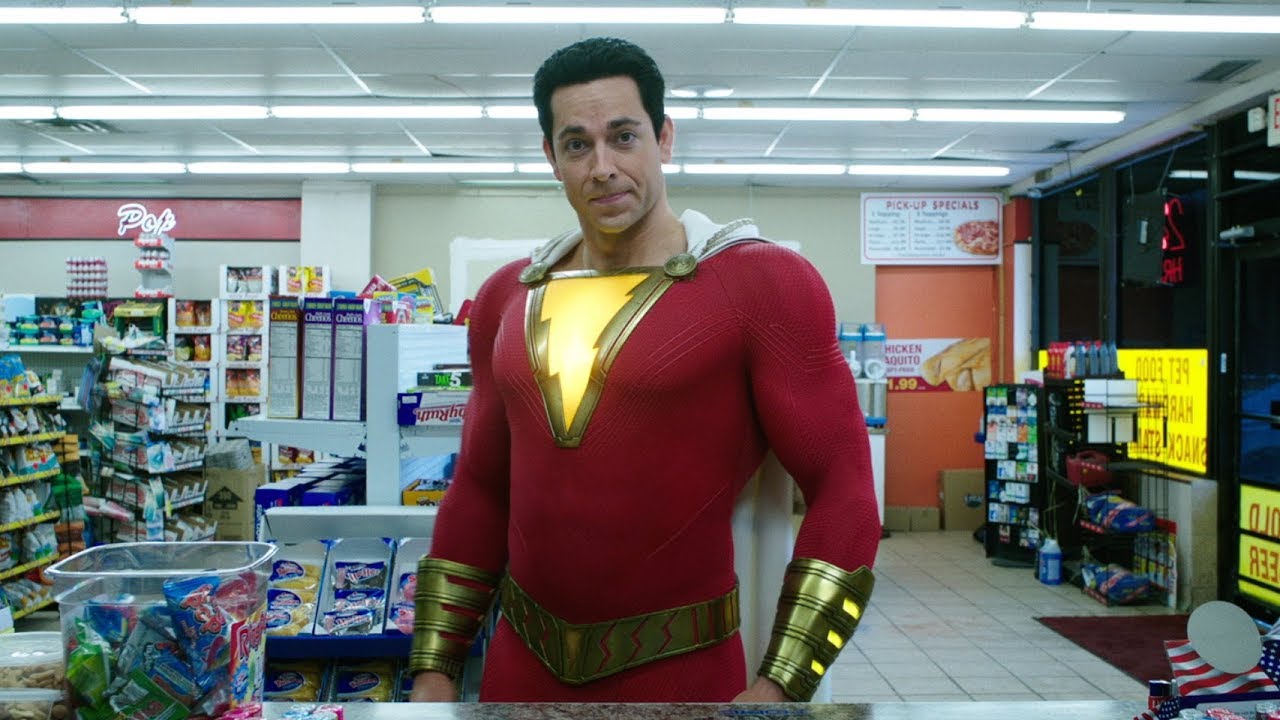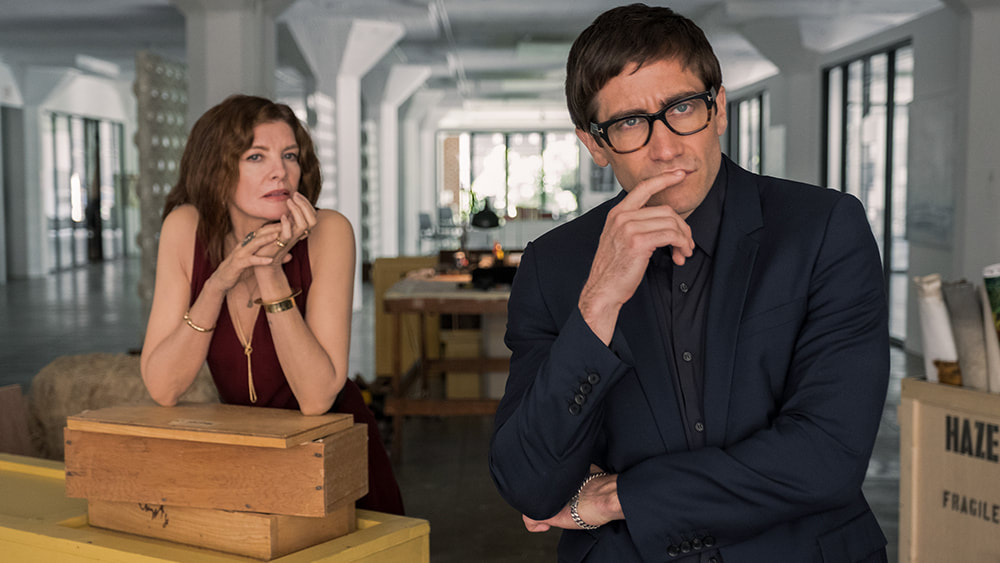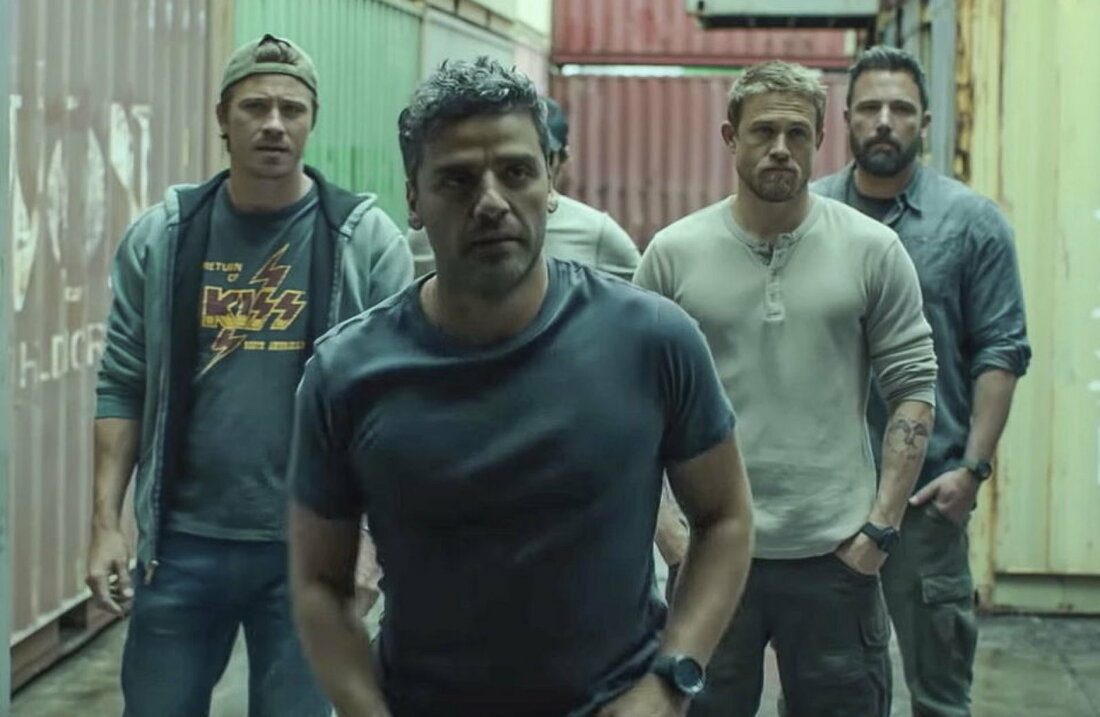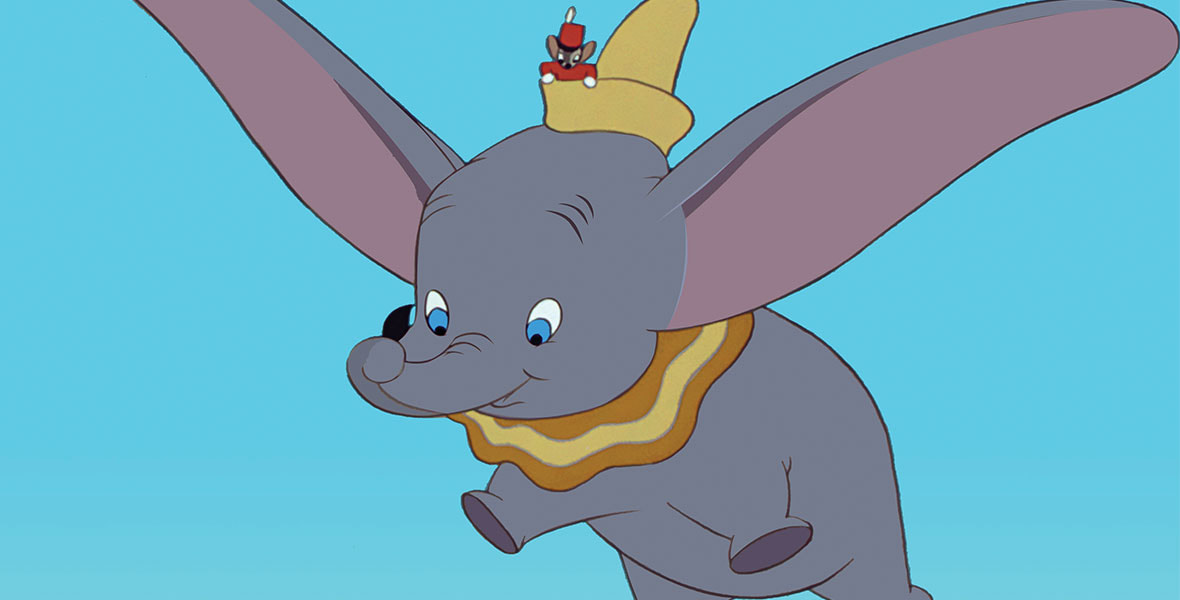|
by Philip Price Director: Michael Chaves Starring: Linda Cardellini, Raymond Cruz & Patricia Velasquez Rated: R Runtime: 1 hour & 33 minutes A horror film based on Mexican folklore about a "weeping woman" who drowned her own children in a river and is then doomed to an eternity of seeking out the children of others is, well ... a pretty great set-up in story and tone as well as hinting at the natural aesthetic a movie should take.
So, how hasn't this been converted into a product for profit already? Unfortunately for Hispanic culture, director Michael Chaves, in his feature directorial debut, seems to have been told to approach this from a very specific standpoint by a studio invested in a very specific vision of a cinematic universe rather than from a financier who might have allowed the filmmaker to integrate the natural inclinations the folklore would lend to a visual representation. That said, and this is somewhat ironic, the movie’s biggest strength is in fact its visual prowess as the narrative resorts largely to jump scares and extended sequences of as much rather than nurturing an actual story or developing actual characters. Though I haven't seen any of the shorts Chaves has directed, ‘La Llorona’ feels very much in line with the visual stylings of James Wan, the originator and cultivator of this series of horror films from the same universe. In approaching such promising material from this mindset, the result is almost inevitably middle-of-the-road as it hits all of the required beats without ever making the audience dance (or squirm) to its rhythm. Furthermore, while Chaves and his team go to great lengths to nail down an atmosphere and period-specific details (like ‘The Conjuring’ films, this also takes place in the ‘70s) much of it is in service of few to no genuine scares. There is even a general lack of creepiness as all that occurs and all that is being threatened to happen to these characters we mostly care about only because they are either children or widowed women are more broad examples of horror movie tropes than they are specific consequences of having encountered as unique a figure as the "weeping woman".
0 Comments
by Philip Price Director: Anthony Russo & Joe Russo Starring: Robert Downey Jr., Chris Evans & Mark Ruffalo Rated: PG-13 Runtime: 3 hours & 1 minute The culmination of 11 years and 22 films worth of story, ‘Avengers: Endgame’ concludes one of the greatest experiments in cinematic history and does so with as much grace and satisfaction as one might hope or expect a single moment to capture. That isn't to say there aren't a few hiccups along the way, but what is here to complain about feels so quaint in comparison to what the film gets right that they hardly seem worth mentioning. Directors Joe and Anthony Russo have achieved what felt damn near impossible leading up to the release of the film and that is to have met the loftiest of expectations. Having been invested in these films for over a decade now and experienced the highest of highs and lowest of lows with each of the key players, ‘Endgame’ takes it upon itself to find both closure in and resolution to many of the biggest arcs that have-knowingly or unknowingly-been playing themselves out for much of this same time period. That is to say, while ‘Endgame’ more than compensates the eager opening night audiences with its pure "fan service" finale, the casual viewer or even the small remainder of the rest of the general population that hasn’t seen a single Marvel movie-should they decide to invest themselves this late in the game-might find themselves rendered surprisingly affected in these times of great trial and potentially even greater consequence. ‘Endgame’ is certainly something of its own beast in that it thrives on its own, very distinct, structure and strong individual character arcs (especially for the core group of original Avengers) and more or less functions as a stand-alone piece if not a direct sequel to ‘Infinity War’; yet it is the kind of sequel audiences always complain they don't get enough of. Meaning, ‘Endgame’ compliments its predecessor without replicating it in hopes of delivering the same type of fulfillment. In every sense, ‘Endgame’ couldn't feel more different than the largely space-based ‘Infinity War’ as that film was non-stop from the word go to the moment of the decimation. In ‘Endgame,’ our titular heroes are dealing with the repercussions of this event, the fallout of certain relationships and the idea that maybe, for once, they won't actually be able to save the day.
In 2008's “Iron Man,” Robert Downey Jr.'s Tony Stark began as a man unaffected by the true nature of his contributions to the world; a man who couldn't be bothered by the semantics of his company's dealings and the implications they set for the future as long as there was a present profit to coast off of. Stark Industries gave Tony more money than God and the ability to do literally whatever he could want in life, but until his "funvee" was hijacked and he was forced to figure his way out of a cave with nothing more than a "box of scraps" it never occurred to him how much he could actually do with the opportunity afforded him. With this realization comes the burden of responsibility and it is within this quandary of doing what he wants and doing what he knows he must do given his knowledge and abilities that the arc of Tony Stark has gone back and forth from one movie to the next. In a way, it was always going to be the case that Downey Jr.'s Tony Stark/Iron Man would have to make a decision between his own personal gain and that of the benefit of the universe, but I don't know that either Stark himself nor his now loyal audience knew such a personal crisis would ever reach the scale it does in ‘Endgame.’ As has been every ‘Avenger’ film thus far (and even most of a Captain America one), the Marvel Cinematic Universe (MCU) is a universe centered on the arrival of Iron Man and his disruption of the status quo. ‘Endgame’ is no different, but it is more mature. Tony Stark himself has matured incredibly since the conclusion of that first film and in ‘Endgame’ we first find ourselves with a man who is broken and who has seemingly been beaten by what he has been on a collision course with for some time. This is all to try and find ways to work around saying that the arc Downey Jr. and his character go through in ‘Endgame’ is one of the most gratifying aspects of a film filled with satisfactory moments. This is as much a Tony Stark film as it is a Steve Rogers film and this is more a Stark and Rogers film than it is maybe an Iron Man or Captain America film. It is in this regard, in the Russo's realizing that to make these giant tentpoles and their giant spectacles work, that the character work has to come first, and the investment has to be made for anything to feel like a victory. Even without the past decade worth of films building our compassion for these characters the filmmakers expertly craft reason in these briskly-paced 180-minutes that grant each of these characters a conclusion that is both earned in the sense of where things go yet simultaneously reassuring in the idea that there was no other way. In other words, what we've seen and what we see here is essential to not only who these characters are, but in building what the MCU was, is, and will become. What is maybe most rewarding about ‘Endgame’ though, is that none of it feels contrived in the sense that each action is necessary and logical to get from one point to the next while each of those steps could very easily have been misconstrued as little more than an excuse to play the series' greatest hits. ‘Endgame’ is anything but a rehash of the films that came before it, but it does take those films into immense consideration and uses the actions of many to help inform and enhance some of the more critical moments that take place here. Not to get too spoiler-y, but it's not only moments we recognize from earlier films that screenwriters Christopher Markus and Stephen McFeely pull from in order to remind us of our worthwhile investment, but it could be things as big as putting recognizable characters in fresh environments that we never imagined we might see them and have only heard about up until this point down to interactions we maybe, kind of assumed had taken place, but would have had no actual reason to outside our own desires that manifest themselves in ways so natural and charming one would be forgiven to forget they're watching a movie about a bunch of folks in silly costumes making a huge fuss about a MacGuffin so that they might defeat a big, bald purple bad guy. It is admittedly silly in a lot of ways and when stopping to consider everything one must say to explain the machinations of what is happening one begins to realize what a wonder it is that so many people have come to take this all so seriously. Therein lies the magic of not only what Kevin Feige and Marvel Studios have done, but what the Russo Brothers have done to root these characters and circumstances in a world where tone is as fluid as the feelings actual humans possess throughout their actual days. While, in the wake of that ‘Infinity War’ conclusion, ‘Endgame’ opens on an appropriately somber note the idea that not every waking moment would be this way is not lost on the Russo's for as soon as we are introduced to our first setting in the film we are also swiftly reminded of all the personality these characters possess and what makes them endearing outside of the fact they are now existing within these incredible circumstances that we're also invested in. From Tony and Nebula (who has truly come so far it's a genuine marvel) through to Thor and Bruce Banner, we are no longer here simply to see what they must overcome and what adversary they must fight in order to overcome it, but we are legitimately devoted to these character arcs and concerned with where they might be going and how. This brings us to another point about the MCU that is often forgotten in the fray of action sequences and special effects: these are really good actors. Yes, the whole idea they've had 11 years and 22 films to allow audiences to become so committed to these characters is part of it, but simply seeing these people time and time again wouldn't be enough to make viewers care about them as much as the continued profit for each film has proven people do. Having already talked at length about Downey Jr.'s contributions it needs only to be added that the man gives a hell of a performance in ‘Endgame’ from top to bottom and through every stage this journey takes his Tony Stark/Iron Man on. And then there is Chris Evans, who has come to embody Steve Rogers/Captain America so much and to such a stringent extent in some regards that it is refreshing to see what Markus and McFeely are able to do with the character for, despite being over one hundred years-old, they show the man still has room to grow and learn. Evans, who has a much bigger part to play in this than he had in ‘Infinity War’ (rest assured), takes on the responsibilities placed upon him with his usual, effortlessly clean stride that always reaffirmed Rogers was indeed the best man for the job those many years ago. In ‘Endgame’ specifically though, Evans is allowed to acknowledge this side of the man who maybe held up this facade for the sake of others without paying any attention to himself. Part of being Captain America has always meant being completely selfless, but in ‘Endgame’ the Russo's and the screenwriters craft instances that allow the character more consideration for himself and his own desires. For fear of spoiling too much no more will be said, but it is sufficient to say that Evans gives yet another honorable and completely captivating-as well as a rather humorous-performance as Captain America. Furthermore, Scarlett Johansson again proves to be the MCU's most overlooked actor and Black Widow it's most underrated character as it is Natasha Romanoff, more than anyone else, who holds out hope for something that might correct or reverse "the snap" as many of the others have either given up or are on fruitless missions in the aftermath. Johansson as Romanoff is what holds the Avengers together; a mere mortal telling gods, aliens and war machines that what they're doing is not a waste of time, but essential to restoring what Thanos has corrupted. In short, it becomes evident just how much this family means to this character and how much this character is in fact the beating heart of this family. While Downey Jr., Evans, and Johansson hold down the serious side of things the Russo's once again know how to keep their tone in check by utilizing Chris Hemsworth, Mark Ruffalo and Paul Rudd to great comic effect while never going overboard or allowing the jokes to feel inappropriately timed or misplaced, but instead keeping this juggernaut of a movie balanced. You know, as all things should be. by Philip Price Directed: Neil Marshall Starring: David Harbour, Milla Jovovich & Ian McShane Rated: R Runtime: 2 hours While one might expect a single-word description of how they feel coming out of something called “Hellboy” to be along the lines of "bewildered" or "curious" or even "confused" what it actually feels like coming out of Neil Marshall's 2019 re-boot of the Hellboy comic character is "numb".
There is so much happening in this desperate (which makes zero to no sense given no one was clamoring for more) attempt to bring Mike Mignola's comic back to the big screen in hopes of launching another new franchise that it doesn't seem anyone involved stopped long enough to consider what that franchise might need to look like given the context of its existence. Instead, screenwriter Andrew Crosby is throwing as many characters, subplots, flashbacks and countless other things at the audience at once that it's overwhelming to the point of feeling nothing. That is to say, this new “Hellboy” fits squarely into the cliché of "everything and nothing all at once". If one were to describe “Hellboy” and everything that it contains it would be almost ignorant to think that what was about to come your way couldn't potentially be one of the greatest albeit most ridiculous things ever while in reality it turns out to be nothing short of the definition of incoherent. And despite so much going on, nothing lands, nothing to make you-the viewer-care about anything or anyone on screen, and while there is technically a narrative here this is mostly just an excuse to exercise some cool practical make-up and prosthetic techniques as strung together through blandly executed action sequences (except for the final, epilogue scene - where is that “Hellboy”?!?!). It’s not all bad as David Harbour, taking over for the much-loved Ron Pearlman who previously dawned the sawed-off demon horns in Guillermo del Toro’s two original films, is seemingly having a lot of fun and making the most out of having the opportunity to play the character, but his vigor isn’t near enough to justify sitting through an extended two-hour runtime for a movie that could have been streamlined into 90-minutes of pure, horror/action schlock. This version of the comic is what it seemed Marshall wanted to make given he was granted an R-rating by Lionsgate, but even the leaning into of the restricted rating is wasted on an excess of blood rather than being capitalized on with more creatively gruesome endeavors. by Philip Price Directed: Kevin Kolsch & Dennis Widmyer Starring: Jason Clarke, Amy Seimetz & John Lithgow Rated: R Runtime: 1 hour & 41 minutes As with 2017's “IT,” this year's adaptation of Stephen King's 1983 novel is an update of an earlier adaptation that has a loyal fan base born of the generation in which King also penned these horror stories. Is this to say those original, filmed adaptations were more in tune with King's stories than today's updates? I couldn't say specifically in regards to “IT” or “Pet Sematary” as I haven't had the nerve to open either of those books, but while 1989's “Pet Sematary” and 1990's “IT” miniseries undoubtedly share a certain kindred spirit with King’s novels these current re-imaginings operate on a grander scale of sorts - idolizing the source material in a way that translates these stories in more epic terms to the screen.
King’s emotionally-driven, character-based work tends to use the horror genre more as a mask for saying what he wants to say which would seem to account for why King’s work has always operated in being more vividly unsettling than straight up scary, but the themes of Pet Sematary are really dark ... even for King. Though I have no personal connection or nostalgic ties to either King’s original novel or the original 1989 movie adaptation I tend to be intrigued if not by the premises of King’s works, but for the emotional investment they are able to create through this aforementioned character work. This is why “IT” ultimately worked so well two years ago for despite having a terrifying clown at the center it was the group of kids and their personal stories as well as the dynamics between them that allowed the movie to work and to be about things besides Pennywise. In directing duo Kevin Kölsch and Dennis Widmyer’s new take on King’s material, there is certainly no fear of going as far as is necessary to evoke the grief that comes along with dealing in loss and more specifically-the loss of a child. Kölsch and Widmyer undoubtedly create a sense of dread from the beginning playing the titular location in a way King would be proud as this sense of dread is not only represented in the literal manifestation of this burial ground, but of the reach it has into the lives of those that both live near and/or meddle in it. An interesting concept and fitting approach, no doubt, but while the emotions are as raw as the aesthetic approach it is a lack of connection to these character’s-especially Jason Clarke’s withdrawn nature despite his character’s actions-that give “Pet Sematary” a strong sense of purpose if not the lasting, devastating impact it seems pre-disposed to possess. by Philip Price Director: David F. Sandberg Starring: Zachary Levi, Mark Strong & Asher Angel Rated: PG-13 Runtime: 2 hours & 12 minutes “Shazam!” immediately sets itself apart from its comic book brethren by opening the film not with a flashback to that of the titular hero’s origin, but to that of the origin of its main villain; an antagonist that very easily could have been the protagonist and caused this story to be a very different one had one slight outcome been different.
Maybe slight is the wrong word as Mark Strong's Dr. Sivana takes a certain defeat to heart and dedicates his life from this point on to figuring out why he wasn't worthy of dawning the Shazam suit. The point being, director David F. Sandberg (“ Annabelle Creation”) and screenwriter Henry Gayden (“Earth to Echo”) begin their movie by filling in the blanks of the bad guy and immediately set-up the audience with an understanding and empathy as to how the rest of the events we see unfold do in fact unfold in the manner they do. This is a key ingredient in a recipe that is repeated so often these days with so many super hero and comic book films saturating the market that filmmakers, studio heads and whole creative teams alike have essentially been forced to find ways to differentiate their hero from the next studio's hero. While personally, I'm as sincere a fan of both sides of the studio rivals as I could imagine to be “Shazam!” does a pretty damn good job of making a full-length, fun feature out of what could arguably be one of the corniest super heroes ever put to panel. Shazam is a super hero that is actually a kid and is costumed like a hero out of a 1940's serial series wearing his cape with pride and his spandex with dignity as the large, luminescent lightning bolt that is the symbol of his heroism shines brightly at the costume's core. While most modern super hero films will tend to dial back the costumes that graced the pages of the source material so as to ground the film and the character in more of a familiar reality, “Shazam!” embraces the corniness whole-heartily and then balances it with a true threat in the aforementioned villain, true tension in that villain's master plan, and real stakes that aren't cataclysmic in nature, but more personal both in relation to the characters we come to know and invest in as well as in making the film feel more like a small movie made for a specific group of people rather than the big movie that appeals to everyone it so very clearly is. Director: Stephen Merchant Starring: Florence Pugh, Jack Lowden & Lena Headey Rated: PG-13 Runtime: 1 hour & 48 minutes Let me preface this review by saying I hate sports. Ever since I was a kid, I’ve never seen the appeal of physical competition. I was never that fast, strong or aggressive. I simply didn’t care for athletics and to this day it just isn’t my thing. I typically feel the same way about sport-centric movies. They don’t usually grab my attention or move me in anyway. So, when I first heard about “Fighting with My Family,” I wasn’t exactly sold on seeing it. I didn’t see any trailers for it, I only knew that it was being produced by Dwayne Johnson and had Lena Headey in the cast. I went in scared that I’d find the film uninteresting and sit in an uncomfortable theater chair bored for almost two hours. I’m happy to report that despite my fears, “Fighting with My Family” packs quite the emotional punch.
To give a brief rundown of what the film is about, it all centers on the true story of Saraya Bevis (played by Florence Pugh) and her family who are obsessed with wrestling. Her parents push she and her brother Zak (played by Jack Lowden) to wrestle from a young age, with each of them becoming quite good. They both develop a dream to wrestle in the WWE and the opportunity arises after they submit audition tapes. Saraya is the only person who gets picked to continue on after try outs, with her brother staying behind in their hometown. From there, we see the ups and downs of Saraya and her family after she travels to Florida to train for the WWE. The script of this film is written with plenty of wit and warmth to match. The humor is effective to the point that I had to wonder if Saraya and her family were truly this funny. The jokes are always either sharp or heartfelt, not a single one feels out of place. I appreciate the film balancing Saraya’s off-kilter family with a nuanced realism and heart. The onscreen family felt very real to me, a credit to the writing and the acting. Thematically, the film deals with plenty of engrossing issues. This being a true story, the film did have an easy time finding themes to work with. It’s the subtle execution of these themes onscreen that is so incredibly impressive. People projecting both their dreams and failures onto others is something that Saraya deals with throughout the course of her story. Her family puts all of their own baggage and ideals onto Saraya. The film portrays her as sympathetic in this regard, as she’s just trying to find herself while realizing her own dreams. There’s also exploration of embracing your imperfections or what makes you weird in the film. Saraya is constantly hearing that she’s a freak or that her family is strange, and throughout the story she has to learn to fully embrace who she is. This is showcased in a way that mirrors a phoenix rising from the ashes. It’s beautiful seeing Saraya grow into herself, you root for her to the very end. I love how good of a job the movie does at being fair to its characters. Each character has flaws and makes mistakes, as they are based off of real human beings. Saraya’s parents are very pushy toward their children in their pursuit of money. Despite this, I never once doubted that the parents truly loved their children. I think that they wanted the best for them but got caught up in their own dreams. Zak also struggles with not being able to realize his dreams while also being grateful for what he has. Though he clearly went through a frustrating time, the film doesn’t judge him for this behavior. Even Saraya makes her own mistakes, misjudging some of her fellow WWE trainees and almost quitting when things get hard. Instead of judging any of the characters, they’re portrayed as flawed but resilient. It’s a success that the film can show humanity at its best and worst without demonizing or idealizing it. All of the rich themes wouldn’t be so wonderfully realized if it weren’t for the amazing cast at work here. Pugh is wonderful as Saraya, giving her own vibrant energy to the real life portrayal. She comes across as very sharp in her comedic timing, nailing every fiery one-liner with ease. The true strength of her performance lies in her ability to move the audience with just a subtle look. The moment where Saraya finds out that Zak is rejected by the WWE feels like a gut punch the moment that Pugh turns to the camera. She masterfully handles the layers of Saraya with vulnerability and strength, she’s a wondrous onscreen presence. Pugh is joined by a tremendous supporting cast, starting with the always fantastic Headey, who does outstanding work here, bringing her dramatic gravitas that we’ve seen before but surprising with her remarkable comedic abilities. She delivers humorous lines with enthusiasm and spot on timing, it’s lovely to see her show off her obviously wide range. Nick Frost is delightful as Saraya’s father, giving a performance that is both parts hysterical and poignant. Lowden is a good match for Pugh as Zak, skillfully showcasing the inner turmoil he went through during this time. Vince Vaughn is also quite good as Saraya’s trainer in the movie. He delivers a performance that is filled with heart, humor and gusto. I have to give director Stephen Merchant credit for making me actually care about sports. Of course, a large part of my investment of the wrestling in the film was due to my care for Saraya, but Merchant executes the fights masterfully. I was engrossed in seeing what move would come next every time someone entered the ring. I felt the tension whenever Saraya was fighting and that is due in large part to Merchant’s directing skills. I have to applaud him for convincing me for at least once in my life that I might be able to feign interest in a sport. This is a movie that the world needs right now. It’s a story that will make you feel good without being cloyingly cheesy. It’s a rousing tale that will get your blood pumping and the fact that it’s true makes it 10 times better. I had never heard the story of Saraya Bevis before seeing this film, but it’s now a story I’ll never forget. This film moved me to tears and made me invested in a subject that I had previously hated. In my opinion, that makes “Fighting with My Family” a true cinematic champion. Director: Dan Gilroy Starring: Jake Gyllenhaal, Rene Russo & Zawe Ashton Rated: R Runtime: 1 hour & 53 minutes “Velvet Buzzsaw” is the latest film from director/writer Dan Gilroy, whose last film was 2017’s “Roman J. Israel, Esq.” He’s joined here by the lead actors from his 2014 psychological thriller, “Nightcrawler,” Jake Gyllenhaal and Rene Russo. ‘Buzzsaw’ takes a dark look at the fine art industry, just as “Nightcrawler” did with broadcast news. The result is just under two hours of witty satire, impeccable performances and a pretty lackluster ghost story.
Without spoiling anything in the story, the film centers around the fine art scene and all of its dark melodrama. The film begins by introducing us to art critic Mort Vanderwalt, his agent Josephina and art gallery owner Rhodora Haze. Not too long after the introduction, Josephina finds a man named Vetril Dease dead in her apartment building. Not too long after his death she wanders into his home, which is full of impressive artwork. Josephina brings these paintings to Mort who is blown away by their intense visionary qualities. Soon the paintings catch the attention of everyone in their art circle and they all want a piece of Dease. This is where things start to get scary – well, at least where they’re supposed to. “Velvet Buzzsaw” has a fun first 20 minutes or so, poking fun at the fine art scene with wicked glee. The film is a successful showcase of unintentionally hilarious that pretentious people can be – particularly artistic people or critics. The film has a (rather creepy) art piece called the “Hoboman” robot. Someone describes this piece as so timely and impactful that you can “feel the winds of the apocalypse.” To my delight Gilroy has written these characters snobbish to the point of hilarity. It’s a treat watching the cast discuss the world of art in endless hyperbole and outrageous quips. The fun doesn’t last forever though as the film slows down immensely after about 30 minutes. When Josephina finds the paintings of Dease, the film takes a hard turn for the worse. A once sharp dark comedy turns into a generic, messy horror film over a plodding middle chapter of the story. People start dying off one-by-one without much tension or creativity involved – it just sort of happens. Even the fact that there are haunted paintings killing people can’t make this more entertaining. Predictability plagues “Velvet Buzzsaw” – every death or “twist” is easily foreseeable as the film slowly drifts into B-movie territory. The film feels a lot longer than its just under two-hour runtime. The last 30 minutes or so pummels you with a ton of mindless horror to wrap up the film. The third act feels both overstuffed and hollow, a lot happens but nothing here works in an effective way. Gilroy stretched the second act to its limit and rushed the third act to make up for it. While the directing and writing fall almost completely flat, the cast showed up to play hard ball. Gyllenhaal is sensational here – taking his acting chops to the next level as the over-the-top Mort. He showcases a wildly unhinged electricity here, matched by few other actors. A pure force of nature, Gyllenhaal is the only real reason to check out this movie. Russo is deliciously cold in this movie, her Rhodora is dark with no qualms about being ruthless in business. A massively underused Toni Colette brings a fun edge to the screen when she’s on it. The only poor casting choice is Zawe Ashton, whose Josephina is inoffensive but lackluster compared to everyone around her. The character comes across as dull and emotionless, which is a shame considering how much of the film she’s in. “Velvet Buzzsaw” makes sense for Netflix to have picked up, it’s a perfect match for the streaming service. Netflix has a reputation for having few high quality projects and then dumping several mediocre offerings to expand their catalogue. It has enough intrigue and star power to draw you in but ultimately fails to keep you interested. ‘Buzzsaw’ has a few strong elements but overall struggles due to its lack of cohesion or depth. It’s not the worst thing you’ll ever see if you decide to watch, but it’s certainly no work of art. by Philip Price Director: J.C. Chandor Starring: Ben Affleck, Oscar Isaac & Charlie Hunnam Rated: R Runtime: 2 hours & 5 Minutes While watching I kept going back and forth in my head between who it was that directed this: J.C. Chandor or DJ Caruso?
No, wait! It would have to be Gavin O'Connor, right? That would make more sense given he directed Ben Affleck in “The Accountant” and if this thing would have been released in theaters it would have made bank just like that one ($155 million worldwide on a $44 million budget). No? This is Chandor's movie? The guy who made stylish thinkers like “Margin Call,” “All is Lost” and “A Most Violent Year”? That guy made a major action picture for Netflix and not the guy who made “Disturbia,” “Eagle Eye,” “I Am Number Four” and “xXx: The Return of Xander Cage”? Maybe I misjudged you, Netflix. Maybe I had the wrong pre-conceived notions about you, “Triple Frontier.” Like all of Chandor's past work, “Triple Frontier” has style for days - enough style to make me mad at the big, local theater chains for not allowing me the opportunity to see this on the big screen - but what is most surprising about the film is just how much style Chandor is able to maintain even as he rides into the nitty-gritty of some seriously dirty action sequences; they're grimy yet exquisite all at the same time. Furthermore, as much as “Triple Frontier” might make itself out to be a military/heist flick it quickly becomes apparent that for all the action and palpable tension this canvas will beautifully serve to illustrate the screenplay from frequent Kathryn Bigelow (“The Hurt Locker”) collaborator Mark Boal quickly makes it evident this is as much about the themes of greed, dignity and the literal logistical lengths these men go to when priority is placed on things we've assigned value rather than those things that have actual value in our lives. by Philip Price Director: Tim Burton Starring: Colin Farrell, Michael Keaton & Danny DeVito Rated: PG Runtime: 1 hour & 52 minutes I was negative 46 years old in 1941 when Walt Disney released his fourth (and shortest) animated feature, “Dumbo,” a mere 45 or so days before the attack on Pearl Harbor. To watch the original animated feature now is to see little more than simplicity and a cautionary tale about bullying, but in the wake of the context in which it was received initially it could certainly be perceived that a simplistic escape mixed with a prevailing underdog (or elephant) story might have been exactly what the country ordered.
The question then posed to director Tim Burton's new, "live-action" take on the film is what might it mean to those who decide to take in this new experience? What is peculiar about choosing the 1941 film for an updated re-imagining is the fact it is without doubt an experience that will not hold the same nostalgic meaning for the majority of the audience that ventured out to 2017's “Beauty & the Beast” nor does it feature any of the explicit technical wizardry of 2016's “The Jungle Book.” This is the latest film in a string of Disney re-makes that, at their best, can be soulful and moving (“Pete's Dragon”) and at their worst can be derivative and dull (“Alice in Wonderland”), but while “Dumbo” comes to us from the same auteur who ushered in this recent craze with that aforementioned "worse-case scenario,” “Dumbo” seemingly finds Burton not necessarily taking note of what others have done with similar opportunities, but more investing himself more wholeheartedly in the material; caring as much about the themes and ideas that populate his world as he does the design of the world itself. Burton is often referred to as a visionary director and this comes more from the fact he has a signature style than it does the fact he's consistently innovative or wise beyond comprehension, but while-as with many of his more recent endeavors-the sheen may have worn from Burton's visual prowess, “Dumbo” is something of a welcome return in that it is a streamlined, inoffensive and largely harmless tale that simplifies the more recognizable themes Burton has worked in throughout much of his career. Sometimes simplicity is what's needed, what's necessary, and what connects viewers to material more effectively. Burton's Dumbo doesn't break any new ground, but it does keep the emotional beats intact, preserving their poignancy. Who knows, maybe a simple reminder about placing yourself in someone else's shoes is exactly what the country needed right now even if we didn't order it. |
Archives
July 2024
|
